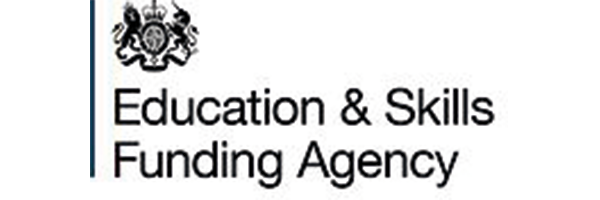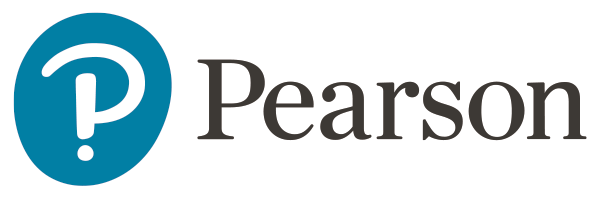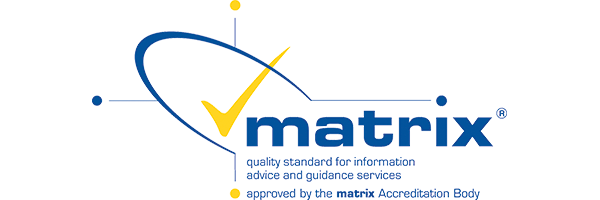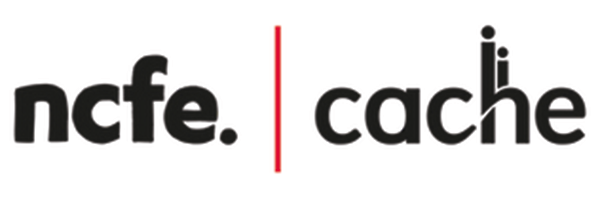Zero Tolerance Promise – ESFA Provision
To be read in conjunction with Mediline Nurses & Carers equality & diversity policy.
North West Community Services Training Ltd presents its zero-tolerance approach to any form of discrimination, extremism or radicalisation.
NWCS Training Ltd opposes all forms of unlawful and unfair discrimination, abuse, neglect, extremism and radicalisation.
NWCS Training Ltd is committed to eliminating discrimination and promoting diversity amongst our workforce and student groups. Our aim is that our workforce and student groups will be truly representative of all sections of society and that each person will feel equal, respected and able to give their best. To that end the purpose of this promise is to:
- Provide staff and students with a clearly communicated zero-tolerance promise.
- Ensure that all staff and students commit to making the same zero-tolerance promise and work in accordance with its principles.
- Support and guide staff and students to learn what NWCS’s zero-tolerance promise means.
- Help staff and students to understand NWCS’s culture of inclusion, mutual respect and the high level of safeguarding we expect and provide.
- Provide teaching, awareness-raising and compulsory training for staff and students to ensure we create and maintain an environment where we do not discriminate.
- Safeguard against discrimination on the grounds of the following protected characteristics: age, disability, gender reassignment, marriage and civil partnership, pregnancy and maternity, race, ethnic origin, skin-colour, nationality, national origin, religion or belief, sex or sexual orientation.
- Oppose all forms of unlawful and unfair discrimination, including all forms of harassment, bullying, cyber-bulling.
- Similarly, we will oppose any form of abuse, neglect, extremism and or radicalisation. These are covered further in our Safeguarding Policy and Procedures and curriculum delivery.
- Provide a framework for staff and students to report concerns about their safety, equality, opportunity or well-being to designated named staff responsible for Safeguarding.
Here are some word and phrase definitions that may help you through induction and your learning with NWCS.
- An act or a piece of legislation is passed by both Houses of Parliament and agreed to by the Crown, which then becomes part of statutory law (i.e. is enacted).
- All reasonable steps in relation to harassment by an employee, all the things which the employer could reasonably have done to stop it; in relation to reasonable adjustments, ‘reasonable steps’ is another term for the things that the employer could reasonably have done to remove the disadvantage.
- Black, defined by black people themselves not only to describe skin colour but also specific life experiences and cultural aspects of life. Therefore ‘black’ is used to encompass a range of people from different racial and groups.
- Bullying – Bullying can be described as persistent actions, criticism or personal abuse, either in public or private, which humiliates, denigrates, undermines, intimidates or injures the recipient.
- Bi-sexual – Physical and or emotional attraction to men and women.
- Code of Practice – Is a statutory guidance document which must be taken into account by the courts when applying the law and which may assist people to comply with the law.
- Different needs – Refers to the different requirements that people with protected characteristics may have which either must or should be met to provide Equality, including Equality of opportunity and access.
- Direct discrimination – Less favourable treatment of a person compared with another person because of a protected characteristic, such as religion or pregnancy.
- Disability – A person has a disability if s/he has a physical or mental impairment, which has a substantial and long-term adverse effect on that person’s ability to carry out normal day-to-day activities.
- Disadvantage – A detriment or impediment – something that the individual affected might reasonably consider changes their position for the worse.
- Disadvantaged – When someone suffers a detriment or finds an impediment to enjoying a benefit in comparison with others because of a characteristic of theirs; encountering a pre-existing barrier which is inherent in their workplace but which doesn’t have the same effect on others
- Disabilism (or ableism) A concept that distinguishes a certain proportion of society (those who have a physical disability, a mental illness, or emotional, behavioural or learning difficulty) from the so-called ‘able-bodied’ majority.
- Discriminate unlawfully – When for example, an employer has treated someone less favourably because of a protected characteristic (discriminated against them) and does not have a valid defence.
- Diversity – Where many different types of people are included.
- Duty to make reasonable adjustments – Where a disabled person is at a substantial disadvantage in comparison with people who are not disabled, there is a duty to take reasonable steps to remove that disadvantage by (i) changing provisions, criteria or practices, (ii) altering, removing or providing a reasonable alternative means of avoiding physical features and (iii) providing auxiliary aids.
- Equal work – A woman’s work is equal to a man’s in the same employment (and vice versa) if it is the same or broadly similar (like work); rated as equivalent to his work under a job evaluation scheme or if she can show that her work is of equal value to his in terms of the demands made of her
- Equality policy – A statement of an organisation’s commitment to the principle of Equality of Opportunity in the workplace.
- Equality training – Training on Equality law and effective Equality practice.
- Extremism 1 – Means literally driving (something) to the limit, to the extreme. Nowadays, the term is mostly being used in a political or religious sense, for an ideology that is considered (by the speaker) to be far outside the (acceptable) mainstream attitude of society.
- Extremism 2 – Today the British Government defines extremism as, vocal or active opposition to fundamental British values, including democracy, the rule of law, individual liberty and mutual respect and tolerance of different faiths and beliefs.
- Gay – The term adopted by the Gay Liberation Movement of the 1960’s in an attempt to affirm a ‘truly joyous and alternative lifestyle’ and to replace the term, ‘homosexual’. Homosexual men use ‘Gay’ predominantly.
- Gender reassignment – The process of changing or transitioning from one gender to another.
- Harassment – Unwanted behaviour that has the purpose or effect of violating a person’s dignity or creates a degrading, humiliating, hostile, intimidating or offensive environment. Heterosexuality is romantic attraction, sexual attraction or sexual behaviour between persons of opposite sex or gender. As a sexual orientation, heterosexuality is “an enduring pattern of emotional, romantic, and/or sexual attractions” to persons of the opposite sex.
- Indirect discrimination – The use of an apparently neutral practice, provision or criterion which puts people with a particular protected characteristic at a disadvantage compared with others who do not share that characteristic and applying the practice, provision or criterion cannot be objectively justified.
- Less favourably – Worse; not as well or good as something or someone else.
- Positive action – Refers to a range of lawful actions that seek to overcome or minimise disadvantages (e.g. in employment opportunities) that people who share a protected characteristic have experienced, or to meet their different needs.
- Protected characteristics – These are the grounds upon which discrimination is unlawful. The characteristics are: age, disability, gender reassignment, marriage and civil partnership, pregnancy and maternity, race, religion or belief, sex and sexual orientation.
- Race Refers to the protected characteristic of race. It refers to a group of people defined by their race, colour, and nationality (including citizenship) ethnic or national origins.
- Radicalisation – Is a process by which an individual or group comes to adopt increasingly extreme political, social, or religious ideals and aspirations that (1. Reject or undermine the status quo), (2. Reject and/or undermine contemporary ideas and expressions of freedom of choice). Religion or belief Religion has the meaning usually given to it but belief includes religious and philosophical beliefs including lack of belief (e.g. atheism). Generally, a belief should affect your life choices or the way you live for it to be included in the definition.
- Safeguarding – It might be difficult to accept, but every child can be hurt, put at risk of harm or abused, regardless of their age, gender, religion or ethnicity. Safeguarding legislation and government guidance says that safeguarding means: •protecting children from maltreatment •preventing impairment of children’s health or development •ensuring that children are growing up in circumstances consistent with the provision of safe and effective care •taking action to enable all children and young people to have the best outcomes and, ‘’the action we take to promote the welfare of children and protect them from harm – is everyone’s responsibility. Everyone who comes into contact with children and families has a role to play.”
- Sex – This is a protected characteristic. It refers to whether a person is a man or a woman (of any age).
- Sexual harassment – Any conduct of a sexual nature that is unwanted by the recipient, including verbal, non-verbal and physical behaviours, and which violates the victim’s dignity or creates an intimidating, hostile, degrading or offensive environment for them
- Sexual orientation – Whether a person’s sexual attraction is towards their own sex, the opposite sex or to both sexes.
- Transgender – Noting or relating to a person whose gender identity does not correspond to that person’s biological sex assigned at birth. The term transgender has largely replaced the older term transsexual, which is now considered outdated. Transgender is a less clinical term, referring more to gender identity and gender expression than to sexual orientation or physical sex characteristics. It is also a more general and inclusive term: a transgender person may be gay, transsexual, transvestite, or even asexual just like any other person.
- Transvestite – A person who sometimes wears clothes traditionally worn by and associated with the opposite sex; typically a male who cross-dresses occasionally by habit or compulsion -Transvestite should not be confused with Transgender or Transsexual (see those terms above); transvestites generally have no desire to change their sex.
- Victimisation – Subjecting a person to a detriment because they have done a protected act or there is a belief that they have done a protected act i.e. bringing proceedings under the Act; giving evidence or information in connection with proceedings under the Act; doing any other thing for the purposes or in connection with the Act; making an allegation that a person has contravened the Act.
- Further learning about equality, diversity, inclusion and staying safe.
Here are some ways we expect you will learn more about understanding and tackling extremism, radicalisation and all forms of discrimination at NWCS Training Ltd. Please discuss how to access the following resources and learning opportunities with your Tutor/Assessor:
- Student charter
- Student handbook
- Equality and Diversity workbook
- Equality and Diversity training
- Equality and Diversity policy
- Safeguarding policy and procedures
- Health and Safety policy
- Risk Assessments
- Acceptable ICT User Policy
- Online safety guidelines
- Extremism and British Values
My Zero Tolerance Promise
I will eliminate any form of discrimination and harassment from my behaviour, including: labelling, judging, name-calling, bullying and cyber-bullying
• I will do my part to make my community a safe place
• I will be respectful and sensitive to the sex, gender identity, religion, beliefs, sexual orientation, ability and needs, race, origin, nationality, cultures and traditions of others
• I will set the example of a knowledgeable and caring individual and respectful citizen
• I will not swear or use offensive names, labels or language
• I will not let my words or actions hurt or offend others
• I will listen to and accept feedback from teachers, tutors and other students about my behaviour and conduct
• I will promise to be part of the solution to discrimination in my community and promote equality, diversity and respect
• I will report any incidents or concerns about safeguarding, discrimination, and extremism or radicalisation activity to a member of staff or a safeguarding officer immediately
• I will encourage others to do the same at all times
Name:
Signature:
Date:
OP06-Equality & Diversity
Implementation date – December 2017 Authorised by J.L. Furnival – Director of Learning Version No 2- Reviewed December 2018






